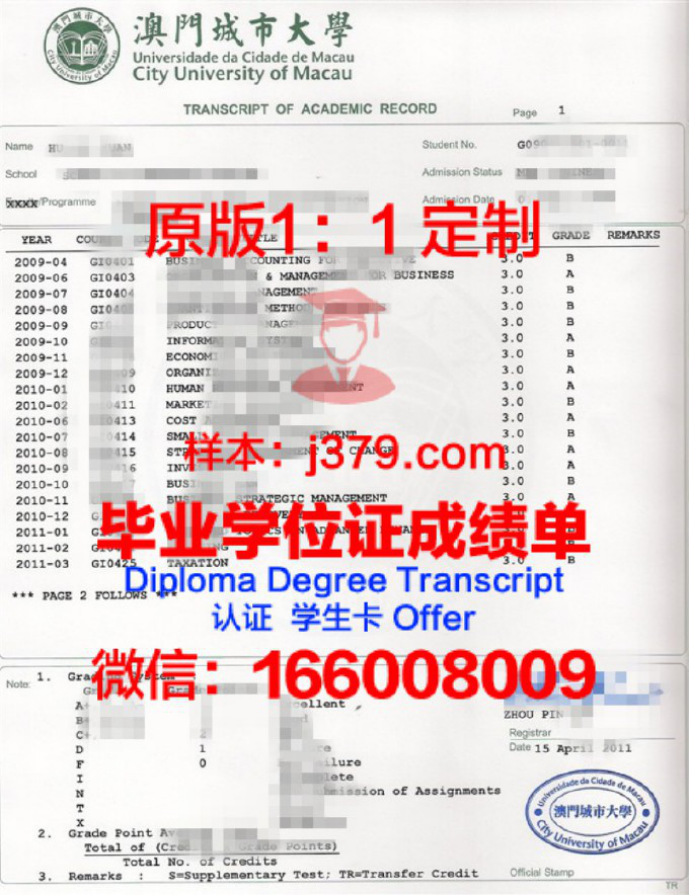研究生学位证书英文
- 时间:
- 浏览:8
- 来源:华中教育在线
Title: The Significance of the Master's Degree Certificate in English

In the realm of higher education, the Master's degree certificate holds a position of great importance and respect. As globalization continues to bring people and cultures closer together, the English language has become a universal medium for academic and professional communication. This article explores the significance of the Master's degree certificate in English, its role in the academic world, and its impact on the recipient's future prospects.

The Master's degree certificate in English is a formal document that verifies the completion of a postgraduate program, attesting to the holder's academic and professional competence. It is a testament to the individual's dedication, perseverance, and intellectual growth. The certificate is issued by the university or institution where the degree was earned, and it typically includes the name of the degree holder, the degree title, the institution's name, and the date of graduation.
One of the primary reasons for the importance of the Master's degree certificate in English is its global recognition. English is the dominant language in international academia, and having a degree certificate in English makes it easier for professionals to navigate the global job market. Employers worldwide value the English language proficiency of candidates, as it indicates their ability to communicate effectively with colleagues, clients, and stakeholders from diverse backgrounds.
Here are some key aspects of the significance of the Master's degree certificate in English:
1. Academic Credentials: A Master's degree certificate in English serves as a formal recognition of the holder's academic achievements. It signifies that the individual has successfully completed a rigorous program, demonstrating their ability to analyze complex concepts, conduct research, and contribute to their field of study.
2. Employment Opportunities: In today's competitive job market, a Master's degree certificate in English can be a valuable asset. It sets candidates apart from their peers and increases their chances of securing high-paying, prestigious positions. Employers often view the degree as evidence of the candidate's commitment to professional growth and their ability to adapt to new challenges.
3. Networking: The Master's degree certificate in English opens doors to a vast network of professionals and academics. Graduates can connect with like-minded individuals, share ideas, and collaborate on projects, thereby enhancing their knowledge and expertise. This network can be invaluable for career advancement and personal growth.
4. Credibility and Respect: In many countries, a Master's degree certificate in English is a symbol of credibility and respect. It signifies that the holder has achieved a certain level of intellectual and professional competence, which can enhance their standing in their community and among their peers.
5. Personal Development: Earning a Master's degree certificate in English is not just about acquiring knowledge; it is also about personal growth. The process of completing a postgraduate program helps individuals develop critical thinking, problem-solving, and communication skills, which are essential for success in any field.
In conclusion, the Master's degree certificate in English is a powerful tool that holds immense significance in the academic and professional world. It serves as a formal recognition of the holder's achievements, opens up numerous opportunities, and fosters personal and professional growth. As the global landscape continues to evolve, the value of the Master's degree certificate in English is likely to grow, making it an essential component of higher education.